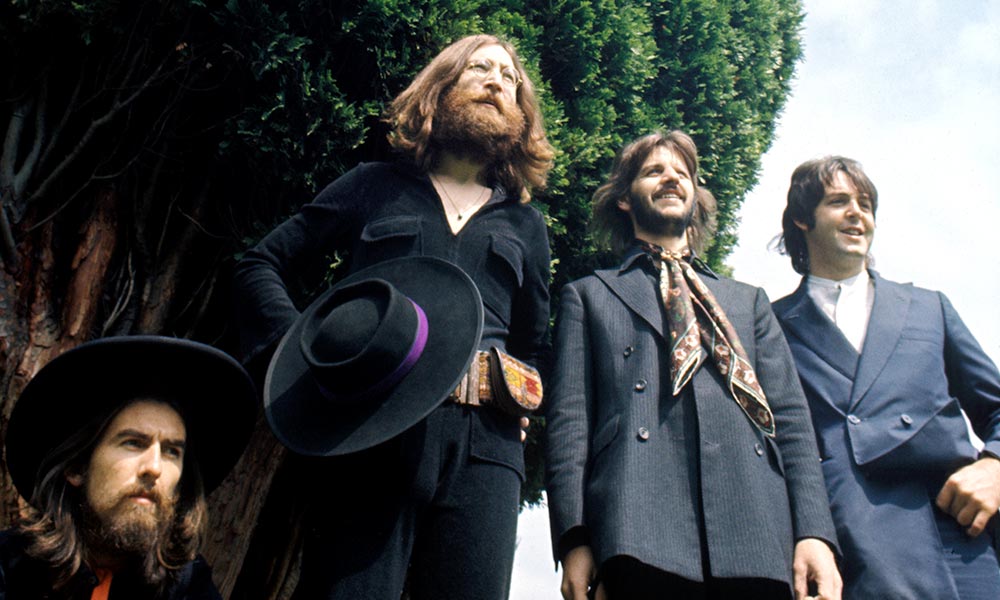The John Lennon-penned “Come Together” may have been a memorable opener for Abbey Road, but it was actually one of the last songs The Beatles would begin working on. Unlike the majority of the songs on the album, which had first been brought to the group during January’s “Get Back” sessions, “Come Together” was written once Abbey Road was under way.
Unlikely origins
The song’s origins were connected to an unlikely campaign in the US. Timothy Leary was best known as the “turn on, tune in, drop out” advocate of LSD who had become such a popular pied piper of psychedelics that Richard Nixon labeled him “the most dangerous man in America.” When John and Yoko recorded “Give Peace A Chance” in their Montreal hotel room during their bed-in for peace, their second such event after their honeymoon in Amsterdam, Leary was not only part of the chorus, sat at the foot of the bed, but was even namechecked in the song’s lyric.
Leary, like Lennon, knew the power of a catchy slogan. Having decided to run against Ronald Reagan for governor of California, he asked John if he’d write a song around his catchphrase “Come together – join the party.” John obligingly busked something quickly onto a tape, which was then broadcast on underground radio stations.
“You couldn’t have a campaign song like that”
“Leary attacked me years later,” Lennon told Playboy magazine in 1980, “saying I ripped him off. Well, I had written another little thing called ‘Come Together And Join The Party…’ It never got further than that. And they never came back to ask for the song. I didn’t rip him off. I had the song there waiting for him.” Describing the song he wrote for The Beatles, Lennon remembered, “I came up with this ‘Come Together,’ which would’ve been no good to him – you couldn’t have a campaign song like that, right?”
Leary backs up Lennon’s story: “Though the new version was certainly a musical and lyrical improvement on my campaign song, I was a bit miffed that Lennon had passed me over this way… When I sent a mild protest to John, he replied with typical Lennon charm and wit that he was a tailor and I was a customer who had ordered a suit and never returned. So he sold it to someone else.”
“I suggested that we tried it swampy”
It was from this unlikely seed that the opening track for Abbey Road grew. Leary may have accused Lennon of pinching his slogan, but his claim wouldn’t gain half the traction that another accusation of plagiarism would garner.
Paul McCartney had noticed that, in its original form, “Come Together” bore more than just a passing resemblance to something by one of their early heroes. “He originally brought it over as a very perky little song, and I pointed out to him that it was very similar to Chuck Berry’s ‘You Can’t Catch Me,’” McCartney recalled. “John acknowledged it was rather close to it, so I said, ‘Well, anything you can do to get away from that?’ I suggested that we tried it swampy – ‘swampy’ was the word I used – so we did, we took it right down.”
To resolve a legal dispute, John recorded “You Can’t Catch Me” on his Rock’n’Roll album. As he explained, “‘Come Together’ is me – writing obscurely around an old Chuck Berry thing. I left the line in ‘Here come old flat-top’. It is nothing like the Chuck Berry song, but they took me to court because I admitted the influence once years ago. I could have changed it to ‘Here comes old iron face’, but the song remains independent of Chuck Berry or anybody else on earth.”
Having slowed the song to a funkier groove, the band recorded “Come Together” at Abbey Road over six sessions, starting on July 21, and the song was released as a single on October 6. The secret to the song’s success lay in its simplicity. The performance was tight and undoubtedly had a swampy funkiness to it. As John recalled in 1980 to Playboy, “It was a funky record – it’s one of my favorite Beatle tracks, or, one of my favorite Lennon tracks, let’s say that. It’s funky, it’s bluesy, and I’m singing it pretty well. I like the sound of the record. You can dance to it. I’d buy it!”
The 50th-anniversary editions of Abbey Road are available here.



